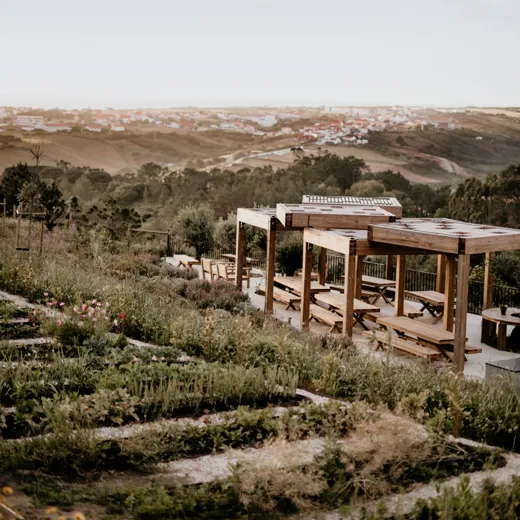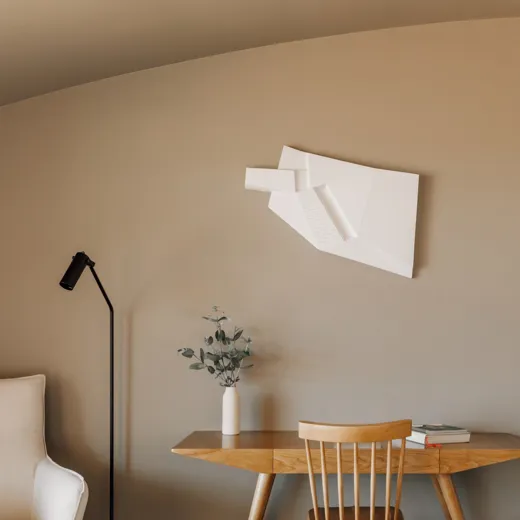

Location
Architecture
Green Certification
Date 08 November 2024
Set in the waterfront paradise of Ericeira, Europe’s first World Surfing Reserve, Immerso Hotel is a masterclass in pairing architectural innovation with true environmental responsibility. Designed by architect Tiago Silva Dias, the structure is built into the hillside to minimize the ecological and visual impact on the nature reserve. In a village famous for its cultural flair and superb seafood, Immerso’s Emme restaurant ties it all together. Chef Alexandre Silva’s honest, locally sourced dishes highlight the region’s bounty, featuring ingredients that go straight from the hotel’s organic garden and local farms to your plate. And with a zero-waste philosophy—turning biowaste into biogas and featuring furniture built to last—Immerso is redefining what it means to stay sustainably.
The Team at Immerso Hotel
Immerso Hotel
Learn more about our Conscious Hotel Principles. Discover our Conscious Hotels.